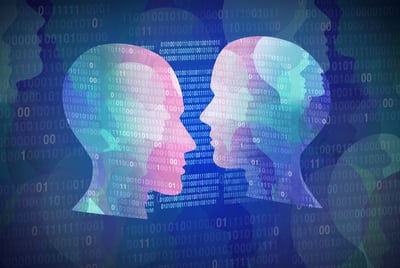
As deepfake technology continues to improve, creators of deepfake technology seek to lock down and safeguard the use of their technology after inappropriate use shows up on the web.
It’s pretty impressive stuff from the folks over at Eleven Labs, makers of “the most realistic and versatile AI speech software, ever.” Founded by Piotr Dąbkowski, a former Google machine-learning engineer, and Mati Staniszewski, a former Palantir deployment strategist, ElevenLabs’ AI can both synthesize speech and clone voices. A recent example posted by them shows a speech by Leonardo DiCaprio to the United Nations, with additional celebrity voices woven in.
Its open beta was well-received with lots of appropriate use, but, according to a tweet by ElevenLabs, some misuse on 4Chan was enough for the AI creators to look to implement additional safeguards.
Some of their posted ideas – including full ID verification to clone a voice – I think will be necessary in the future. It’s too easy these days to clone the voice of a CEO that has plenty of source video of them speaking on the Internet. Use that voice to create a convincing voicemail asking for a payment to be made, for example, and deepfake audio is all that’s needed to carry out fraud against a business.
We regularly teach employees through our Security Awareness Training to be vigilant for any kind of request that is out of the ordinary (such as a VM from the CEO when they’ve never done that before) and to verify using a separate medium to ensure there’s no account takeover, etc. by threat actors.
 Security Awareness Training is critical to enabling you and your IT staff to connect with users and help them make the right security decisions all of the time. This isn't one and done. Continuous training and simulated phishing are both needed to mobilize users as your last line of defense. Request your one-on-one demo of KnowBe4's security awareness training and simulated phishing platform and see how easy it can be!
Security Awareness Training is critical to enabling you and your IT staff to connect with users and help them make the right security decisions all of the time. This isn't one and done. Continuous training and simulated phishing are both needed to mobilize users as your last line of defense. Request your one-on-one demo of KnowBe4's security awareness training and simulated phishing platform and see how easy it can be!




